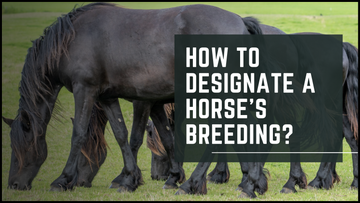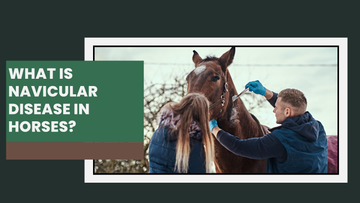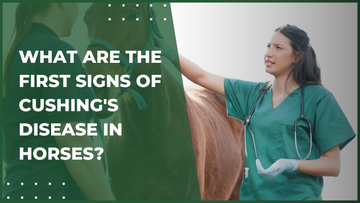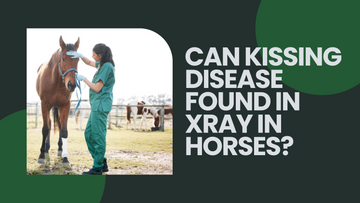Horses need to drink water very often as their big, muscular bodies exert a lot of heat, especially when they work or are placed in warm weather. To keep their body temperature balanced, they need to cool their systems with water. Their systems can't regulate temperature when they are not hydrated enough, thus digesting food or lubricating their muscles and joints, which prevents further injury.
Horses drinking water easily spell doom when they are facing water deficiency. They will spell out fatigue, weakness, as well as other digestion problems within the first 24 hours. In more severe cases, diarrhea and kidney damage fall into the category. These have a tremendous effect on the performance of the horse.
In this blog, we'll learn more about how long a horse can go without water, and how important water is for their health and performance.
Water Requirements for Horses:
You can have questions like, how much do horses drink a day? Horses, on average, consume around 5 to 15 gallons daily. However, this can change a lot based on the environment, like temperature, humidity, and how active the horse is. Hot weather is a crucial element to consider because it can make their water needs increase drastically. This is because they sweat a lot more when they are lactating, which means they will need more water to help make milk
If the horse is not drinking water while eating dry food, they will need to drink more water to help them digest it. The dry food will not have the moisture that grass or soaked feed has.
How Long Can a Horse Go Without Water?
Normally, healthy horses can survive without water for about 3-6 days. However, the effects of dehydration symptoms in horses can start as early as 24-48 hours.
In addition, various environmental conditions such as excessive heat or other factors like heavy workloads can further shorten the window. Equine dehydration in them happens much more quickly as compared to other animals. In a short period, they will begin to see signs like dry mucous membranes, less elasticity of the skin, and lethargy.
Drinking clean, fresh water every day, especially during the hot weather or after excessive work, is very essential to avoid developing health problems for them such as colic, kidney problems, and poor performance.
Make sure that they are drinking enough water at the right times throughout the day, which will bring back the water that is lost through various activities.
Signs of Horse Dehydration to look out for:
Signs of horse dehydration can quickly affect their performance and health. Below is a breakdown of critical symptoms to watch out for, and what they mean:

Common Symptoms to look out for:
To know if the horse is dehydrated is easy to figure out as it will be visibly evident on the their body. A good indicator is the quick "skin tent test" when the skin is pinched at the base of their neck, and if it takes more than a few seconds to snap back, your horse might be going through.
Other signs that you can look out for are dry, sticky gums instead of moist ones and dark, and scant urine, which all point to a decrease in the levels of hydration. They also give signs of lethargy and fatigue, which could be a warning if they are usually active most of the time.
Horse Behavioral Changes:
Dehydration can also change the behavioral level of the horse. It can be active and lively most of the time and can look dull and lifeless when compared to its usual behavior. It will seem to have low energy levels and slower reflexes, as the signs of being dehydrated
Critical Indicators Requiring Immediate Action:
Advanced dehydration can be a veterinary emergency. The possible signs that can show how serious the condition is are tachycardia, weakness, or hard breathing. This will need to be treated by a veterinarian right away. If left untreated, can cause serious problems like kidney failure.
Ensuring Proper Hydration for Horses:

Hydration is a very essential factor for maintaining the health and performance of the horse. Here are several strategies for you to ensure that it stay well-hydrated and energetic throughout the day.
Best Practices for Water Access:
Horses always need to have access to fresh, and clean water. They need to drink between 5 - 15 gallons of water every day. A cleaned-up water trough will avoid dangerous bacteria and make the water appealing.
Monitoring Hydration levels:
Observe how much your horse needs water each day. Checking trough levels daily can tell you if it is drinking less than usual. Also, note how much it eats daily. Dry feeds make a horse drink more water, while wet feeds like drenched hay can help it stay hydrated and improve its health and performance.
Conclusion:
In the world of horses, water is, without a doubt, very critical to their health and their performance. As we all know by now, proper hydration, among other things, will keep your horse strong, active, and happy. Indeed, without enough water in the body, it will easily get dehydrated to such an extent that it can cause serious health issues.
Make sure your horse always has fresh, clean water, and check for dehydration onset, and dehydration recovery time. This will keep it fit, healthy, and energetic in the long run.
If you're looking to boost your horse's well-being with professional advice and top-quality products, The Epic Animal has everything you desire. Elevate your horse's health today by browsing our extensive collection!
FAQs:
Horses typically drink between 5 to 15 gallons of water daily, depending on factors like temperature, humidity, and activity level.
Signs of dehydration in horses include:
- Dry, sticky gums instead of moist ones
- Dark, scant urine
- Lethargy and fatigue
- Skin tent test: Pinching the skin; if it takes more than a few seconds to return, the horse may be dehydrated.
Healthy horses can survive without water for about 3 to 6 days. However, signs of dehydration can start within 24 to 48 hours.
Horses can typically go without food for about 24 to 48 hours, but this can vary based on the individual horse and its health.






